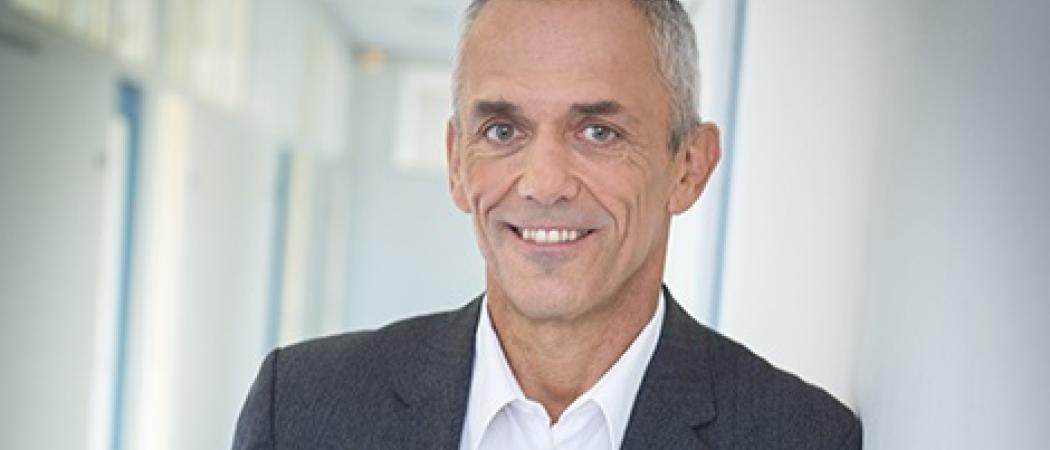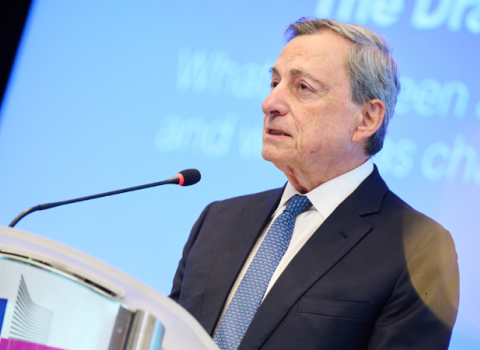As talks on cooking up the next EU framework programme get underway, the head of France’s largest research organisation shares his wish list for the future of European R&I policy

Antoine Petit, chairman and CEO of the French national centre for scientific research, CNRS
EU’s next framework programme for research and innovation should have more funding available for basic research, says Antoine Petit, chairman and CEO of the French national centre for scientific research, CNRS. This would enale what he called “target-driven basic research” to be done jointly with industry.
Horizon Europe is barely halfway through, but policy makers and research representatives across Europe are already thinking about its successor research framework programme 10 (FP10), which is due to start in 2028. At this same time as this debate heats up, progress in the current Horizon Europe programme will be up for review.
Alongside more money for basic research, CNRS would like to see a mending of relations with Switzerland and more cooperation with friendly countries, reform of the Widening funding schemes, and better coordination of EU research infrastructures.
Petit’s main complaint about Horizon Europe is that the balance between funding for basic research and funding for large consortia running advanced R&D projects is out of kilter.
With Horizon Europe being split in three pillars, for basic research, collaborative projects, scaling up innovations, and at the mercy of a top-down policy strategy aimed at getting quick results to prop up EU’s ambitions in the digital and green economies, there isn’t enough room for research projects at lower technology readiness levels (TRL).
“In Pillar 2 there isn’t enough room for low-TRL research,” Petit told Science|Business.
Curiosity-driven basic research is funded through the European Research Council (ERC) in Pillar 1, but there should be more room in Pillar 2 for funding “target-driven basic research” which can be done jointly with industry, Petit said. “In [Horizon Europe] there is not enough room for this collaborative fundamental research.”
Ideally, this problem could be solved in the final strategic plan of Horizon Europe, a policy document which will set out the scope the programme from 2025 up to its closure in 2027.
Petit says that timeframe is not realistic, but urged policymakers to think more seriously about funding the research that would serve as the basis for industrial applications over the next decade, and take a more medium-term outlook, beyond the current policy needs.
There should be more “balance between curiosity drive research and targeted research,” Petit said. “We are convinced that basic research and the business world are not in competition, but help each other.”
Open science and international cooperation
Another item on the FP10 menu should be increased international cooperation. Horizon Europe is not as “open to the world” as its predecessor programme Horizon 2020, mainly because of increased geopolitical tension, the war in Ukraine, mistrust of China, and political disagreements with long-standing partners the UK and Switzerland.
The UK issue has been fixed and the country is associated in Horizon Europe, but Swiss researchers are still in limbo, while other association deals have not been concluded as fast as the research community had hoped.
Petit said the EU should further develop partnerships outside the bloc. “I know that it can be complicated with some countries for political reasons, but I am really convinced that we could not imagine a world with completely separated fundamental research,” he said.
Petit also noted this international cooperation in fundamental research goes hand in hand with open science, but without being naïve about the malevolent intentions of competing economies. “That does not mean that all publications have to be open and that all the data have to be shared. Sometimes, for transfer to industry, we need to keep them closed,” he said.
More investment is needed for connecting EU research infrastructures. Cross-border cooperation in this field is vital, as labs are growing bigger not just in particle physics but also in computer sciences, humanities and social sciences.
“For most of them the right level is European level. It does not make sense to have a national infrastructures,” he said.
The east west gap
One of the main sticking points during the negotiations for Horizon Europe was the issue of the east-west research performance gap. Despite some improvement in recent years, countries that joined the bloc after 2004 are largely lagging behind their richer counterparts in western Europe when it comes to winning EU research grants and participating in large industry-research consortia in Pillar 2.
To fix this, the Commission has come up with various funding schemes aimed at increasing the capacity of these countries to compete in Horizon Europe. Petit now says this system needs to be revised and to truly focus FP10 on excellence as a main criteria for selection.
“If you look at the places that CNRS is in France, we are not [in every region], but we try to be everywhere where there is excellence,” said Petit, arguing that this principle should be applied at the EU level.
“This does not mean that we should not try to increase the level of [performance] in some parts of Europe, but we do not have to compromise on excellence,” he added.
Ongoing talks
The European Commission has already started gathering input for FP10 but talks are in their infancy. The Commission has yet to announce the members of an expert group that will draft the blueprint for the programme, which then could be put through the Brussels policymaking machine starting in 2025.
Some EU policymakers have already started talking about how FP10 should look like and what budget it should have. The Commission’s director general for research and innovation has already confirmed that staffers are “brainstorming” ideas which will be fed in to the expert group, which is expected to be announced next month.
Meanwhile, MEPs are floating figures for how big the budget of the FP10 should be. Christian Ehler and Maria da Graça Carvalho have called for a lofty €200 billion, more than double Horizon Europe’s budget of €95.5 billion.
Petit did not suggest a budget figure of his own but admitted there is room for improvement and more money would be required if the EU is to catch up with R&D investment levels in countries like the US, South Korea and China. “If we want to be at the same level, or perhaps even higher, then we need a corresponding budget,” he said.





 A unique international forum for public research organisations and companies to connect their external engagement with strategic interests around their R&D system.
A unique international forum for public research organisations and companies to connect their external engagement with strategic interests around their R&D system.